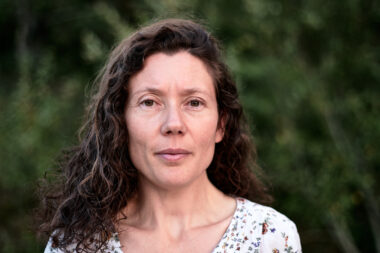Despite some gains Australia is far from gender equity, Monash University researchers say on International Women’s Day. This year’s theme is ‘count her in’ with a focus on economic equality.
In the healthcare sector, a major Australian employer, this inequity is rife. While 75 per cent of this workforce are women, they are significantly under-represented in leadership positions. The World Health Organization report, Delivered by women, led by men, showed that women make up only 25 per cent of senior positions.
The NHMRC and partner-funded Advancing Women in Healthcare Leadership (AWHL) national initiative, led by the Monash Centre for Health Research and Implementation (MCHRI), Monash University, has found that effective, multi-faceted organisational and systems-level changes effectively increase women in leadership positions.
These include leadership commitment and accountability for improving gender equity, processes and policies to address barriers and foster the ability, motivation, opportunity and leadership identity for women to advance their careers, and awareness and engagement strategies that challenge and address organisational-level cultural barriers that block women’s progression to leadership.
Implementing these strategies advance equity, improve women’s financial security and are associated with better health outcomes. But implementation has been slow to date.
Published in MJA, new AWHL research led by Dr Jenny Proimos and Professor Helena Teede highlights the role of colleges and member organisations for medical professionals in promoting gender equity. They found that member organisations unanimously agreed that internal and collective action should be a priority to increase the reach and impact of organisational interventions.
These organisations are already implementing policies such as flexible working arrangements, flexible training options, parental leave and gender targets, informed and supported by AWHL.
Dr Proimos said such actions supported individual careers and improved the broader healthcare sector.
“While the member organisations varied in maturity, readiness, and actions to implement change, they have engaged and are collaborating through a Community of Practice, to explore, develop and implement evidence-based interventions that can be applied in their own contexts,” she said.
Professor Teede, who is a Monash University Professor of Women’s Health and Equity and AWHL Chief Investigator, said the focus had shifted from the burden of change resting with individual champions or ‘fixing individual women’, to evidence-based intervention and implementation processes in the systems and organisations in which women work.
Professor Teede said despite some gains, the following showed women were far from attaining equity:
- the recent Workplace Gender Equality Agency (WGEA) report gender pay gap report, highlighting fewer women in leadership roles
- the World Economic Forum Report showing that Australian women are first in education, yet 46th in relative economic empowerment
- MCHRI’s annual Women’s Health and Wellbeing Scorecard highlights the critical role of financial security in women’s health and wellbeing.
An accompanying MJA Insight commentary by Professor Teede also notes the importance of this year’s International Women’s Day theme, including the need for accurate and granular data and measurement to identify problems, inform and monitor interventions over time.
“Here, we are co-developing a national healthcare workforce data framework to capture more nuanced data on career stage and overlapping areas of discrimination such as being a woman from a racially marginalised background to ‘Count her in and accelerate progress’. Our ultimate aim is for gender equity in leadership and better health outcomes for women,” Professor Teede said.
AWHL partners in research and implementation with 23 of Australia’s leading public and private healthcare organisations, colleges, membership bodies, government and not for profit agencies and international partners.
To celebrate International Women’s Day, and accelerate progress, AWHL is offering a National Women in Leadership Scholarship Program for 15 women from or working with underserved populations, providing an opportunity for leadership development through the evidence-based Women in Leadership Program as a key strategy for advancing women in healthcare leadership.
For media enquiries please contact:
Monash University
Cheryl Critchley - Media and Communications Manager (medical)
E: [email protected]
T: +61 (0) 477 571 442
For more Monash media stories, visit our news and events site
For general media enquiries please contact:
Monash Media
E: [email protected]
T: +61 (0) 3 9903 4840
***ENDS***



